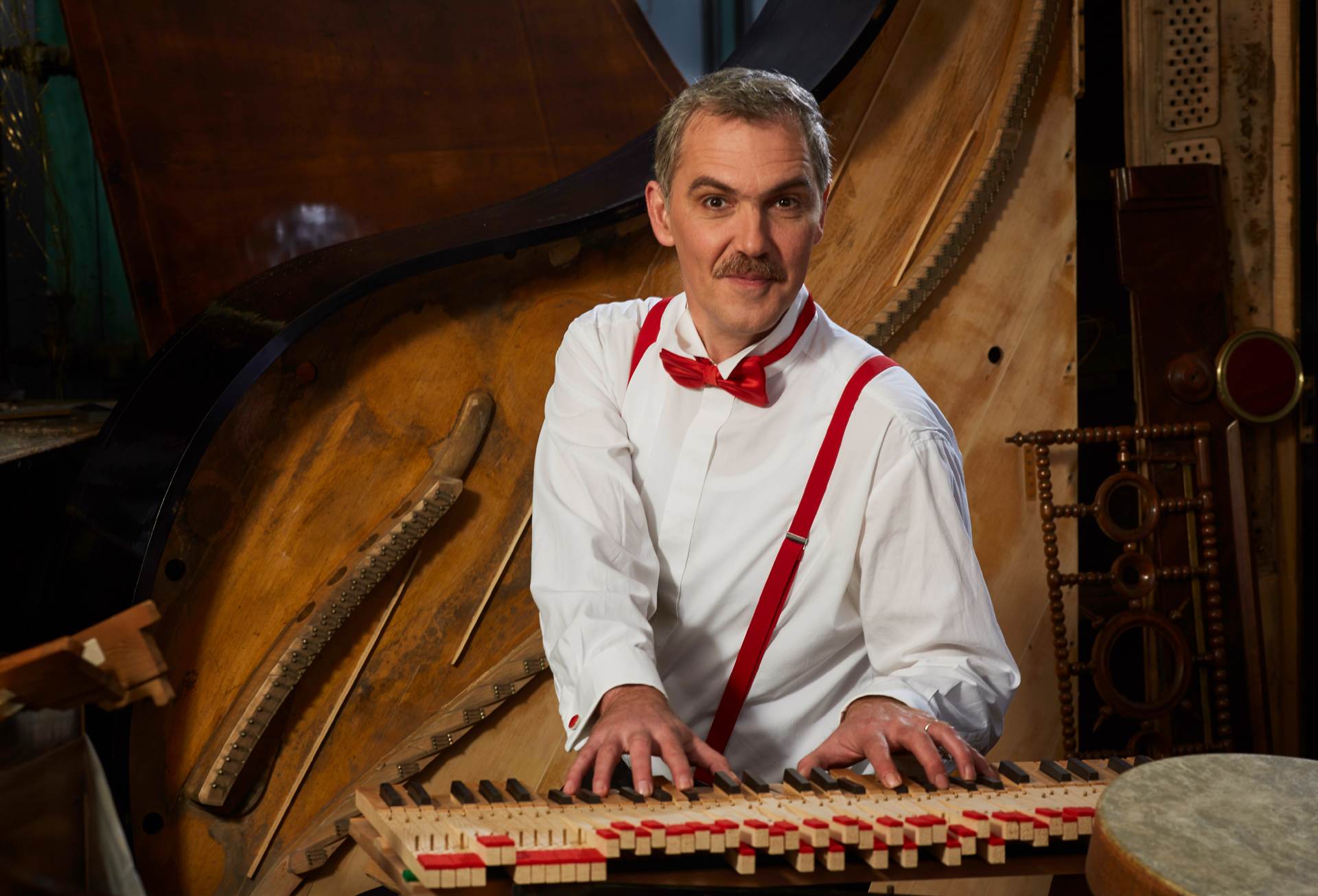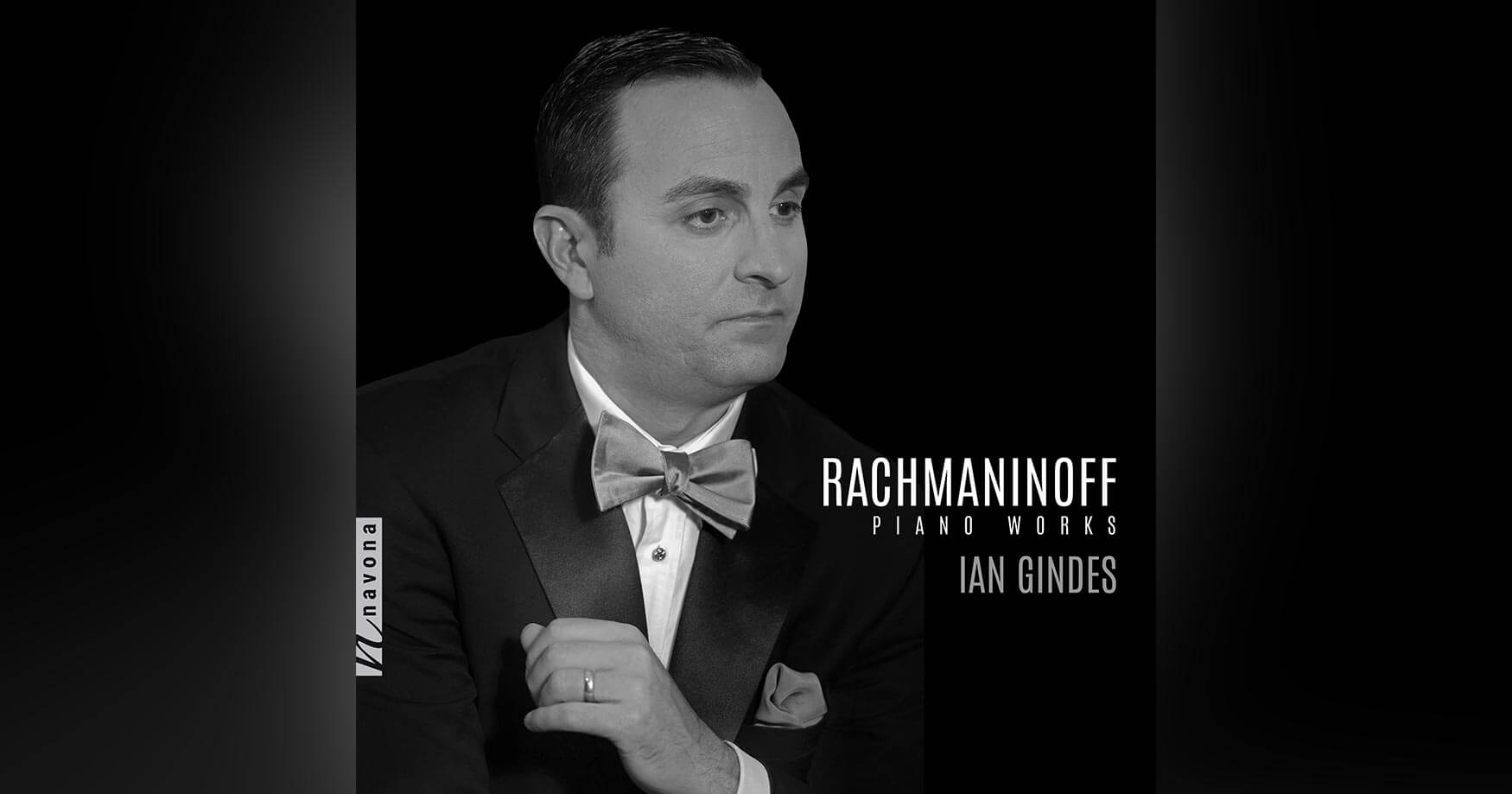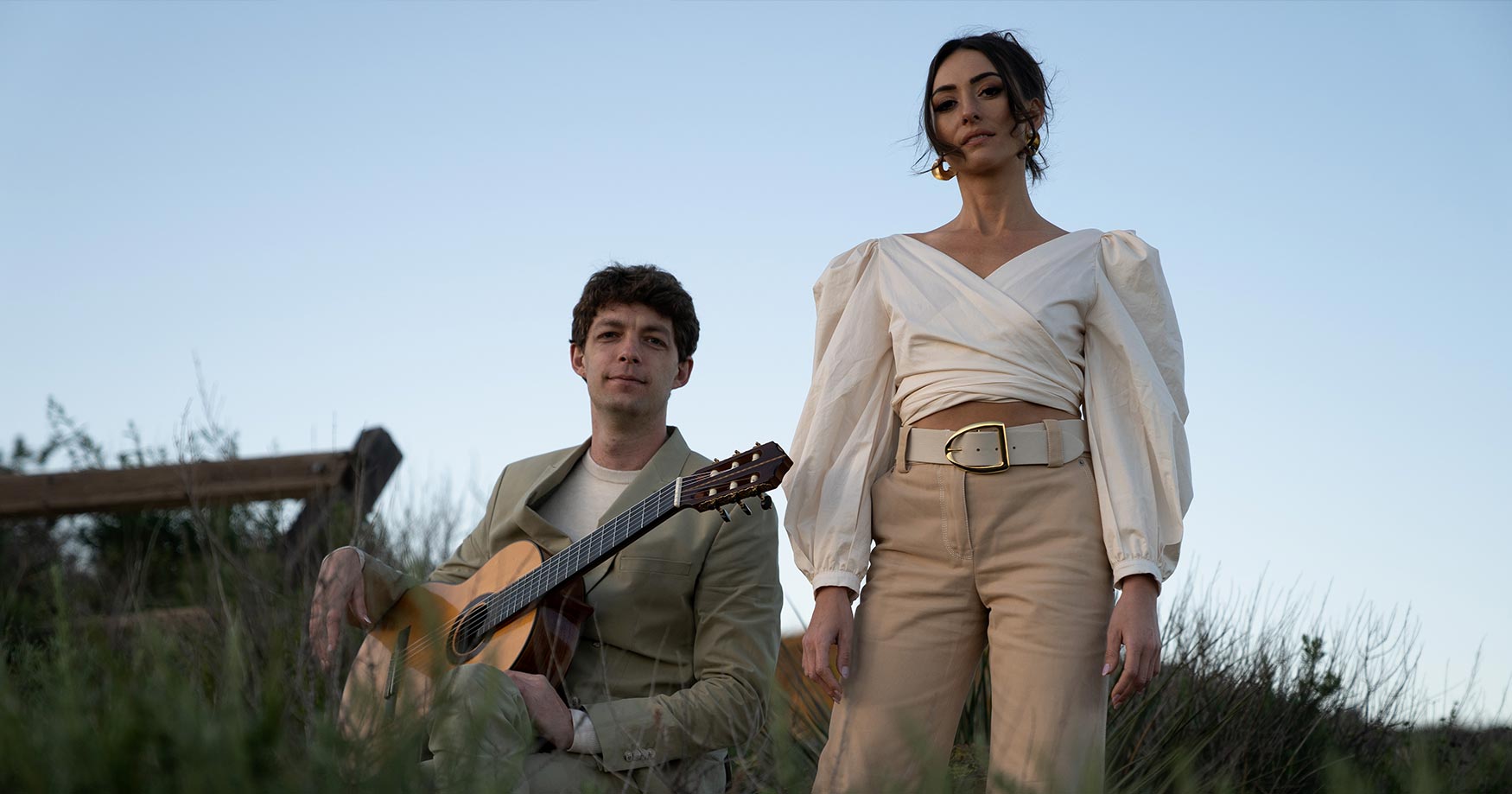Matej Meštrović is an eclectic and versatile composer, having written a large body of works ranging from chamber and orchestral concert music to music for television, theater, and film. He is one of the most prominent artists in his native Croatia, holding a City of Zagreb award. At age 16, he became the youngest composer ever to have a work performed at the Croatian Days Festival. For two consecutive years, he presented a work for the opening ceremony of the Dubrovnik Summer Festival, featuring orchestra, double choir, percussion ensemble, and over 200 dancers.
Matej is an active pianist. He was an early pioneer of Croatian New Age music, which involved a performance with harpist Georgia Kelly at the Zagreb Music Biennale. Recently, he performed in the opening ceremony of the European University Games in Zagreb. Matej also arranges piano parts on the albums of pianist Maksim Mrvica, and is an active director of documentaries and travel films. Matej’s Danube Rhapsody received its world premiere at Carnegie Hall on April 15th 2018, with the composer at the piano. During Summer 2018, Matej toured across China with his trio, the Orient Expresto. Most recently, he released his 3 RHAPSODIES on Navona Records. 3 RHAPSODIES highlights Matej’s gifts as a pianist and composer, while also depicting three locations that are particularly meaningful to him: Eastern Europe, China, and New England.
We recently sat down with Matej to speak about his musical upbringing, his lively approach to performance, and the goals behind each of the pieces on his latest Navona Records release, 3 RHAPSODIES. You can listen here for the story:
In addition, read more about Matej in his recent written interview with PARMA:
Who was your first favorite artist growing up?
I grew up with Mozart. When my mom was pregnant with me, I was listening Mozart from her belly. Not only was I listening; she was on stage, while pregnant with me, so I was in her belly while she was performing Mozart’s Piano Concerto in D minor with the Zagreb Philharmonic Orchestra. I think that is the moment I became piano player and composer! And that is the reason I do not have a stage fright. I was onstage before I was born :)
When did you realize that you wanted to be a composer?
I started my music education when I was 4, so I remember one of my first performances was when I was 6. It was a block flute improvisation on the theme I’d made myself, called “Old Witch.” After that I started playing piano and practicing a lot. My motto was “If you want to practice piano for 25 hours a day, you have to get up one hour early.” I won all the competitions, and had a lot of performances. At that time, besides the classical repertoire, I always played some of my own compositions in concerts. That made me realize that playing my compositions and composing music makes me so much happier than only reproducing classical music from other famous composers. If you ask me when I realized I wanted to be a composer – my answer is when I was 16.
What was your most unusual performance?
A few months ago, after a China tour with my trio Expresto, we had a concert in Zagreb. My colleague Kristina and I play piano 4 hands together, and Borna plays drums. For the encore we play the Pink Panther theme I arranged. When we play it, the theme starts slowly like in the original, and then there is a bridge to the very fast part, almost presto. I usually play that slow part at the beginning alone, and then when it is time for the presto Kristina jumps in and we play 4 hands. On that concert, just when we started to play Pink Panther, an idea came to me, and I asked Kristina, “can you play the slow part instead of me” and she said “Yes.” I jumped off the piano and started to dance on the stage like Pink Panther! During the bridge I finished dancing and got back on the piano, and we played the presto part together, like we usually play. The audience went crazy, it was so funny! :)
What is your guilty pleasure?
Coffee! But not American coffee :) Here is the recipe: 2 deciliters (6.7 oz) of water, 5 teaspoons of black ground coffee, and 4 teaspoons of sugar. Boil the water, put the coffee and sugar in a dry Turkish coffee pot, pour hot water on it, and stir with a teaspoon.
I drink 3 coffees, made this way, per day (and night).
If you could make a living at any job in the world, what would that job be?
I would be a conductor. There is no job for me other than music!
If you could spend creative time anywhere in the world, where would it be and why?
My dream is to spend some time in a house, with a piano of course, on some small island near the beach where it is always summer. Why? Sunshine, warmth, summer, and sea waves are the most inspirational for me.
What was your favorite musical moment on the album?
It is hard to say, because I wrote all three rhapsodies with lots of inspiration and every movement is my favorite. But if I have to choose only one, let’s say then: the first movement of Danube Rhapsody, “Birth Of a River.” I had a world premiere of Danube Rhapsody at Carnegie Hall, with a DCINY Orchestra conducted by Miran Vaupotić, and the moment when the performance started in Carnegie Hall is a feeling I will never forget.
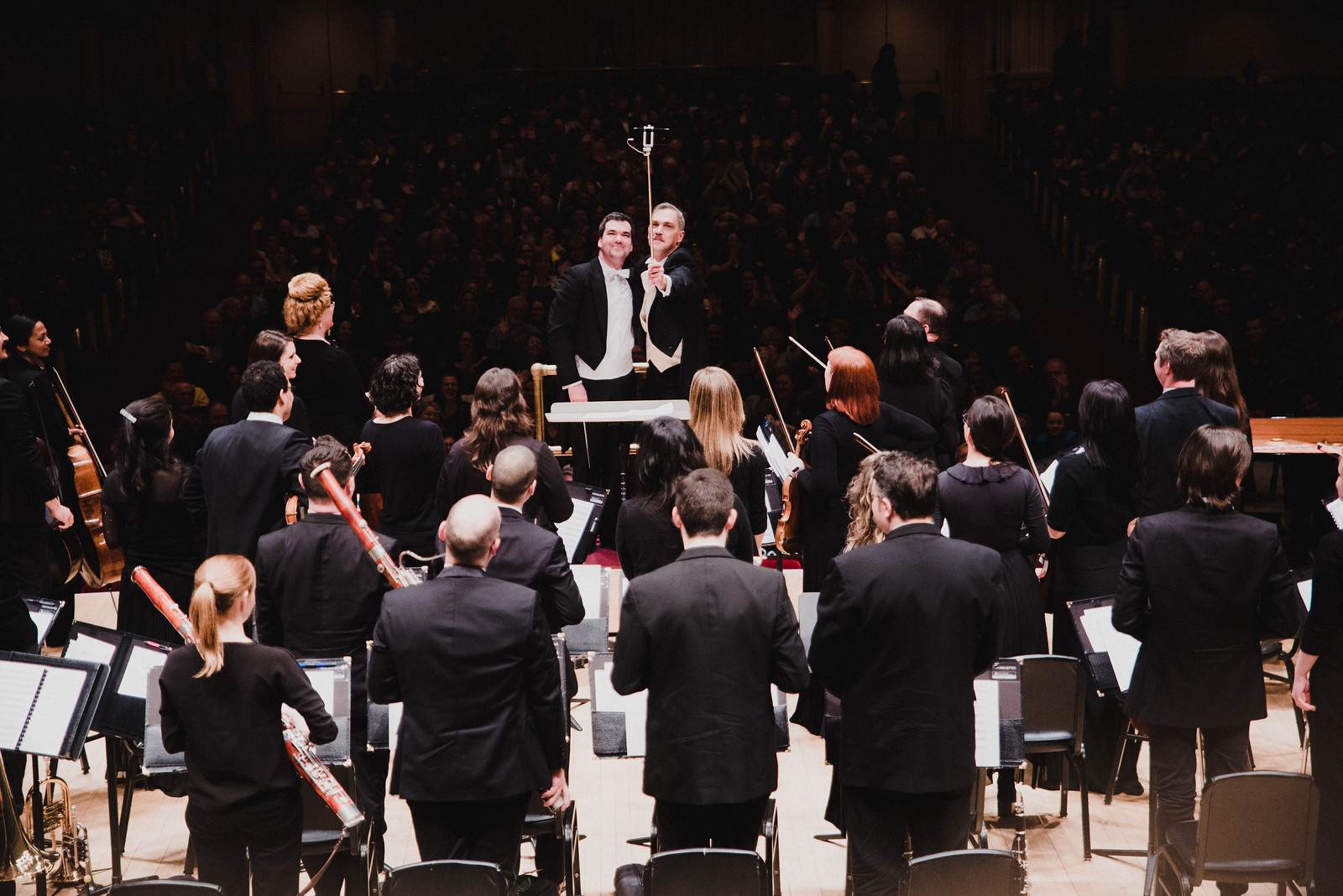
Was there a piece on your album that you found more difficult to compose than the others?
I have no problem with composing! Music always comes to me. I hear the music in my head, and just play, record, edit, and write a score. Technically, when I was composing Chinese Rhapsody, I knew almost nothing about Chinese traditional instruments. So, I asked Chinese musicians to send me some scores of any music written for zheng, erhu, and pipa. After I studied it for a while, I wrote Chinese Rhapsody in only 3 weeks! It is a 12-minute, one-movement score, based on traditional Chinese melodies.
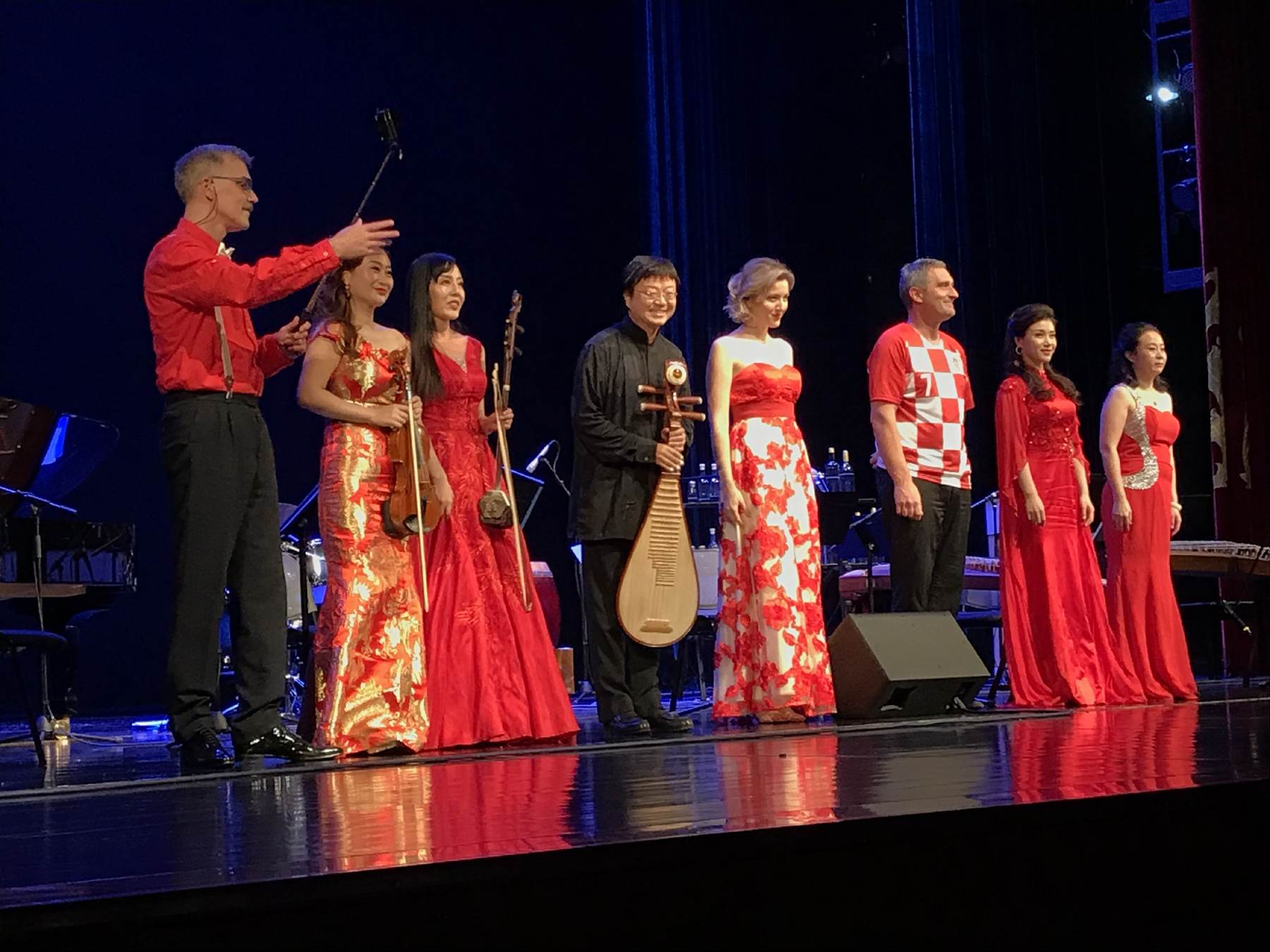
What does this album mean to you personally? Is there a specific feeling you want listeners to tune into when hearing your work?
When I was 19 years old (I am 50 now), I wrote a score for piano, which had a slow melody. That was one of my first written scores ever. Right there and then I decided it would be the second movement for my concerto for piano and orchestra one day. Today, 30 years later, that score, “Poco a poco,” is the second movement of the New England Rhapsody, and I dedicated that movement to PARMA CEO Bob Lord. So, I have a message for every listener on our planet: Follow your dreams. With this album, my dream came true: I have not only one, I have 3 RHAPSODIES FOR PIANO AND ORCHESTRA.
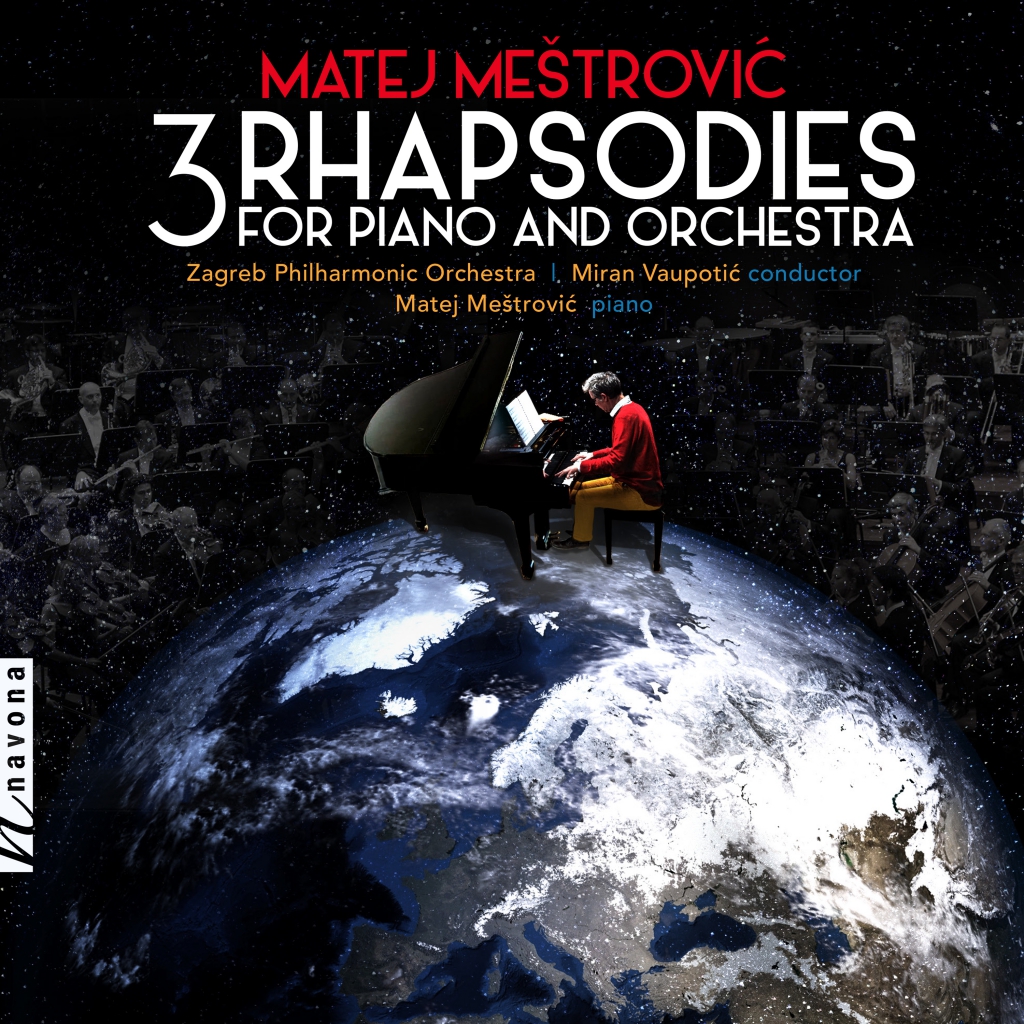
3 RHAPSODIES FOR PIANO AND ORCHESTRA is now available for streaming or purchase through Navona Records. Click here to explore this new album.
The views and opinions in this post do not necessarily reflect those of PARMA Recordings LLC and its subsidiaries, including Navona Records.
